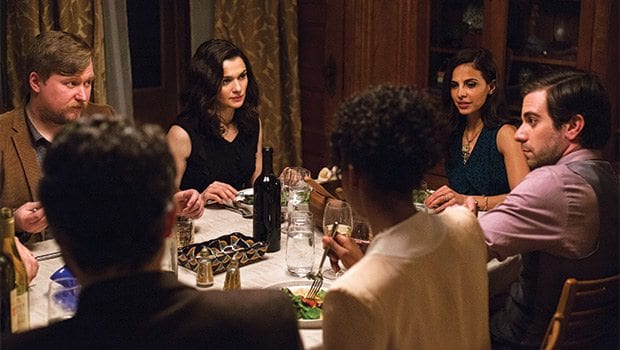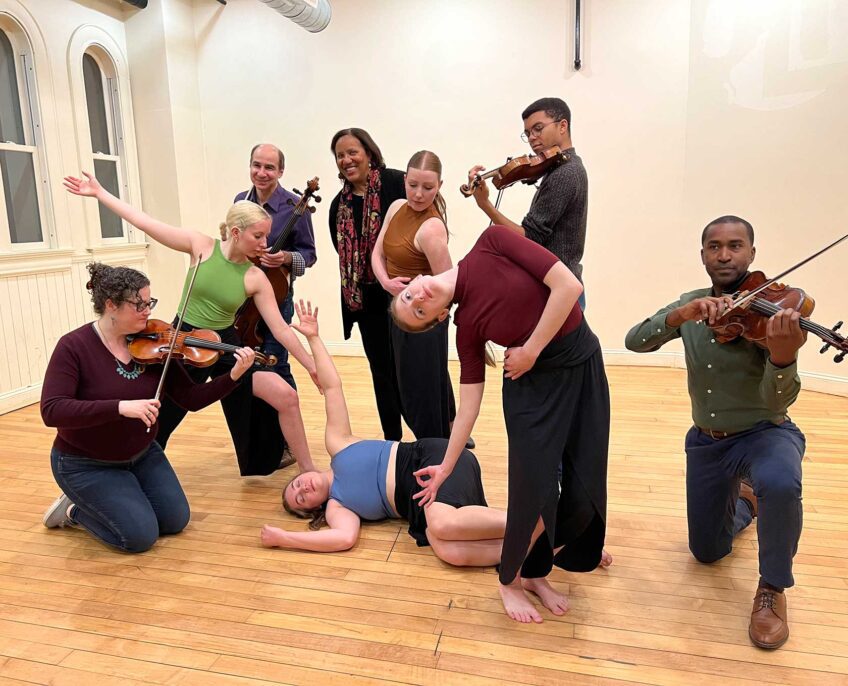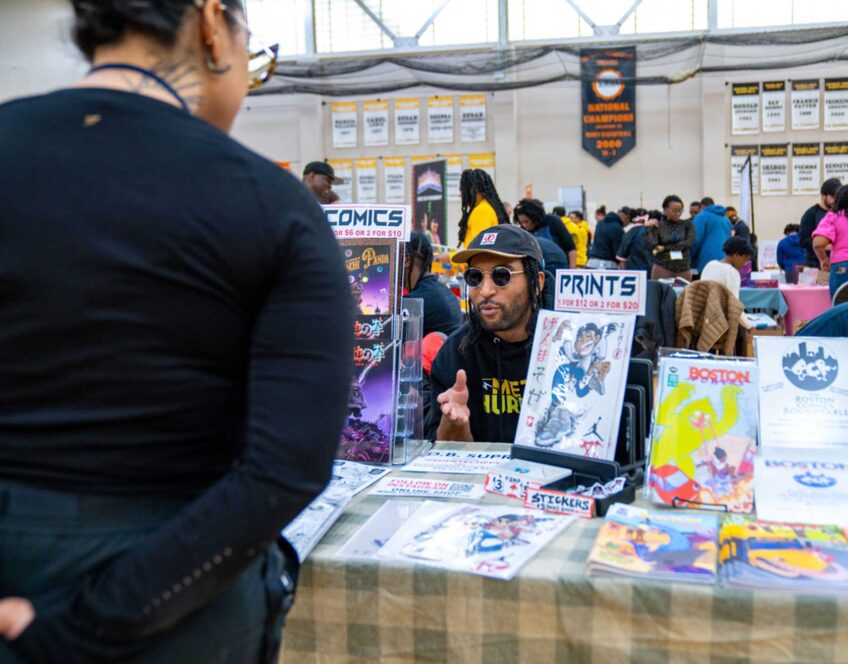Joshua Marston discusses new identity, reinvention in new film ‘Complete Unknown’

“I’m drawn to character-driven or complex character pieces because, as a director, that’s one of the most meaty and interesting things that I get to do, which is to delve into psychology, understand what motivates someone and then talk with an actor about it to bring it to life onscreen,” says director Joshua Marston.
In his third feature film “Complete Unknown,” now playing in theaters, Marston examines the concept of identity and reinvention through one woman’s life, played by the brilliant Rachel Weisz. Weisz stars as Alice, a woman who reinvents herself every few years, each time taking on a new name, new career and new life. Her past catches up with her one night when she attends a dinner party in Brooklyn and runs into Tom (Michael Shannon, “Elvis & Nixon”), an old flame who knows her not as Alice but as Jenny, the woman he hasn’t seen in 15 years. Drawn once again to Jenny (Alice) and to memories of their shared past, she offers Tom a glimpse into her new life and the chance to reinvent his own.
Marston was in town recently and spoke with the Banner about the film, the concept of identity and his latest project.
It was somewhat a dizzying experience to watch this film. It doesn’t follow a straight path. At times I wasn’t quite sure what was happening. It was a bit unsettling. Was that your intention as you were directing it?
Joshua Marston: Yeah. I think when we were writing the movie, we started with this premise of a dinner party, with this image of someone seeing someone across the room and thinking he knows her, and she’s not introduced to him the way he remembers her. We started writing, we got to a certain point, and I think as a writer, I got a little bit antsy in the sense that I didn’t want to keep going in a straight line as a normal film script would. What they teach you in scriptwriting 101 is that, by 20, 25 minutes in, you know what the movie is about. There’s sort of a question — like ‘Will boy get girl?’ sort of thing — and then the movie becomes about answering that question. We got halfway through and I felt like I wanted to take a left turn and go somewhere else, and then take another left turn and go somewhere else again. It’s not an accident. It’s a movie about a woman who does that with her life. In some respects, it’s a movie where form follows content.
When you created this character did you have Rachel Weisz in mind to play Alice?
JM: We wrote it based on that dinner party idea, and then gave the script to Rachel. I had just seen Rachel in a stage play with her husband, Daniel Craig, and was reminded how much I loved her, so sent her the script through her agent. I think it was the Wednesday before Thanksgiving, and I got word back on Monday that she had already read it and wanted to meet. We had this great conversation about how fascinated she was. She had all sorts of questions about why this woman does what she does. Those questions led us to our having a really fruitful collaboration, where I would go off and rewrite, and give her a new draft, and she’d have more questions.
What is about the idea of identity and reinvention that appeals to you? You’ve led a really interesting life yourself. You haven’t gone as far as Alice, but you’ve done a variety of things with your life and career. Is that something that has always intrigued you?
JM: I think, on a much smaller scale, that’s what I want to do with filmmaking: to be able to go into different worlds. Whether it’s drug smuggling in Colombia or blood feuds in Albania, there’s always an interest in learning something new, being in a different place. Obviously, Rachel Weisz’s character is much more extreme and in some respects, much more literal: She’s actually becoming a different person. That’s a fantasy that I have, and I think a lot of people have — that you wake up every morning, you pull out of your driveway and turn left at the end of the block and head to work, and that you fantasize that someday you’re going to turn right and go in the other direction and do something different. I think it comes from that fantasy.
I have to say there’s a line from the film that really intrigued me and I’ve been thinking about it ever since I saw the movie. It’s the scene where Tom and Alice are together and he asks her “How do you keep track of all of your identities?” And she says, “Keeping track isn’t the hard part. It’s when everyone around you thinks they know who you are and try to lay claim to you, then you’re trapped. That’s the hard part.” This line seems to me to be at the heart of the movie. So, what do you hope that audiences take away from seeing your film?
JM: I’m glad that line registered with you. That’s definitely to the question of what motivates her and what causes her to do it. I feel like that feeling is a better explanation than any one event, and I think it’s something that I hope people can relate to. I hope that people walk out of the theater having conversations about the movie, but also about how the movie relates to their lives. That involves either the fantasy of moving on or the question of whether feeling known by others is a trap, or whether it’s the thing that makes us feel human and connected. And whether making a change of something that’s fundamentally human and necessary, or whether changing too much is completely an anathema to living a centered life.
What’s next for you?
JM: I’m getting ready to shoot the next movie. It will star Chiwetel Ejiofor playing the part of a preacher named Carlton Pearson, who’s a real-life black preacher from Oklahoma — Pentecostal — who created something of a controversy when he got up in front of his megachurch and declared that God told him that hell doesn’t exist, and everyone is already saved and going to heaven. And Robert Redford is playing Oral Roberts.




![Banner [Virtual] Art Gallery](https://baystatebanner.com/wp-content/uploads/2024/04/NJ-H_1-713x848.jpg)

